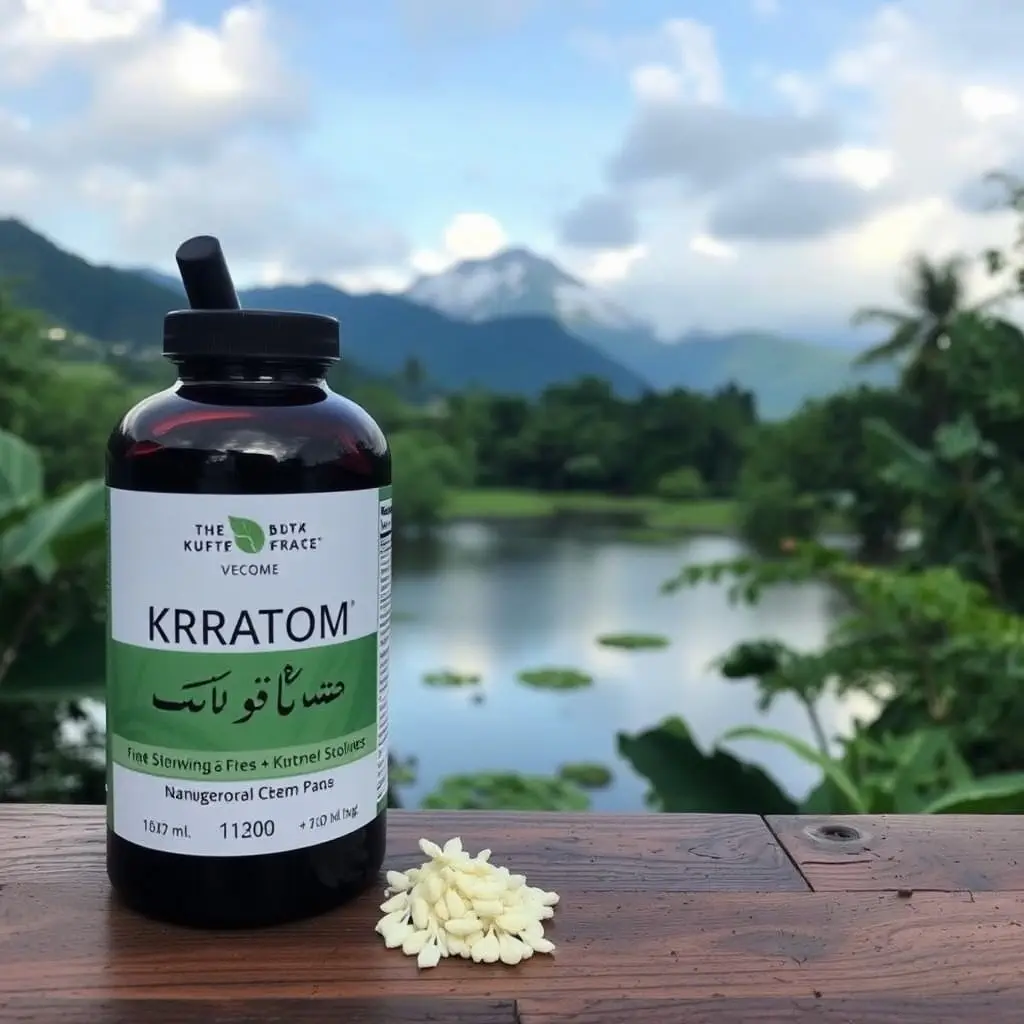Kratom, derived from the Southeast Asian plant Mitragyna speciosa, has been researched for its potential anti-inflammatory properties due to alkaloids like mitragynine and 7-hydroxymitragynine. These compounds may influence opioid receptors and cytokine production, potentially reducing pro-inflammatory cytokines. While studies are ongoing to determine its therapeutic benefits, preliminary findings suggest kratom could serve as a natural supplement for inflammation management. However, users must navigate its complex legal status across different jurisdictions—care should be taken to understand and adhere to local laws when traveling with kratom products. It's crucial to consult healthcare providers for safe and effective use, taking into account strain specificity, dose variations, and individual physiological differences. For travelers, it's essential to verify the legal status of kratom at destinations and within transit countries, considering its classification as a controlled substance in some regions. Powdered kratom may be more practical than leaves to avoid misidentification, and should be stored securely in airtight containers with unmarked packaging. Follow TSA guidelines by placing kratom in checked luggage if legal at your destination or adhere to the 3-1-1 liquids rule for carry-ons. Stay informed about airport security updates, have travel documentation handy, and consume kratom discreetly while respecting local cultural norms and regulations. For those seeking legal advice on kratom use in specific locations, consulting with a legal professional who specializes in such matters is advisable.
Exploring the potential of kratom as a natural inflammation reducer, this article delves into the intricate science behind its alkaloids and their anti-inflammatory effects. With a focus on understanding how kratom can play a role in managing inflammation, we also address practical concerns for those considering traveling with kratom. From navigating legal considerations to offering packing tips and safety measures, this article aims to provide comprehensive guidance for integrating kratom into an active lifestyle, whether at home or abroad. Understanding the nuances of kratom’s potential benefits is crucial for making informed decisions about its use in health and wellness routines.
- Understanding Kratom's Role in Inflammation Reduction: A Closer Look at Its Alkaloids
- The Science Behind Kratom and Its Anti-Inflammatory Properties: What the Research Says
- Can You Travel with Kratom? Legal Considerations, Packing Tips, and Safety Measures for Kratom Use While on the Move
Understanding Kratom's Role in Inflammation Reduction: A Closer Look at Its Alkaloids

Kratom, a tropical evergreen tree native to Southeast Asia, has garnered attention for its potential anti-inflammatory properties. The leaves of kratom contain a complex mix of alkaloids, with mitragynine and 7-hydroxymitragynine being the most prominent. These compounds are believed to interact with various receptors in the body, including opioid receptors, which may influence the body’s inflammatory response. Studies suggest that these alkaloids can modulate cytokine production, a key component of the immune system’s response to injury or disease. This action is significant as it may help in reducing the levels of pro-inflammatory cytokines responsible for the initiation and propagation of inflammation. While the scientific community continues to explore kratom’s effects, preliminary research indicates that kratom could be a beneficial supplement for those seeking natural ways to manage inflammation.
When considering the use of kratom for inflammation reduction, it’s prudent to approach with caution and under professional guidance. The legality and regulation of kratom vary by country and region, and it’s essential to comply with local laws when purchasing or traveling with kratom products. For those interested in incorporating kratom into their health regimen, understanding the correct dosage and potential interactions with other substances is crucial. Consulting with a healthcare provider is advisable to ensure safety and efficacy, particularly given the complex nature of inflammation and its underlying causes. Additionally, the alkaloids present in kratom can have varying effects depending on factors such as strain, dose, and individual physiology, making personalized guidance all the more important.
The Science Behind Kratom and Its Anti-Inflammatory Properties: What the Research Says

MITK (mitragynas speciosa) or kratom, has been a subject of scientific inquiry due to its potential anti-inflammatory properties. The alkaloids found within the leaves of kratom, such as mitraphylline and 7-hydroxymitragynine, are believed to play a significant role in exerting these effects. Studies have shown that these compounds can modulate the body’s immune response, particularly the inflammatory response, which is a complex mechanism involving multiple signaling pathways and cell types. Research conducted on both animal subjects and human cells in vitro has provided evidence of kratom’s anti-inflammatory capabilities, suggesting that it may be beneficial for conditions characterized by chronic inflammation.
Furthermore, the efficacy of kratom as an anti-inflammatory supplement is a topic of ongoing research. Clinical trials are necessary to confirm these findings and establish safe dosing guidelines. Additionally, the legality of traveling with kratom varies by country and within different states in the United States. Travelers interested in bringing kratom with them should first check the specific regulations of their destination to ensure compliance with local laws. The potential benefits of kratom as a natural anti-inflammatory supplement are promising, but it is crucial for users to approach its use responsibly and within the legal frameworks set forth by governing bodies. As such, individuals considering incorporating kratom into their wellness regimen should consult with healthcare professionals to discuss its suitability in conjunction with their health status and current medications.
Can You Travel with Kratom? Legal Considerations, Packing Tips, and Safety Measures for Kratom Use While on the Move

When contemplating travel with kratom, it’s crucial to be well-informed about the legal status of this supplement in your destination and any transit countries. Kratom’s legal standing varies by jurisdiction; while it may be legal in some regions, it is a controlled substance in others. To ensure compliance with laws, verify the current regulations through official channels such as embassies or the Department of Justice before your trip. Additionally, always carry documentation that substantiates the purpose of carrying kratom, such as a doctor’s note if necessary.
Packing tips for kratom while traveling should prioritize its preservation and your security. Opt for powdered kratom over leaves to avoid scrutiny from authorities who may misidentify the leaves as a different substance. Store kratom in airtight containers to maintain potency, and consider using nondescript packaging to prevent drawing attention. It’s also wise to adhere to the Transportation Security Administration (TSA) guidelines when flying, placing your kratom in checked luggage if it’s legal at your destination, or carrying it as an carried-on item, ensuring it complies with their 3-1-1 liquids rule. Always check for updates on airport security measures and carry a copy of your itinerary that includes proof of your intention to use kratom for personal use upon arrival at your destination. For safety measures while on the move, be mindful of the quantities you carry to avoid any suspicions, and never consume kratom publicly in locations where its use is restricted or prohibited. Stay informed about local customs and laws, and if in doubt, consult with a legal expert familiar with the regulations concerning kratom in your intended travel destinations.
In conclusion, the potential of kratom as a supplement for inflammation reduction is underscored by its unique alkaloid profile and supported by emerging scientific research. While considering the legal landscape when traveling with kratom is paramount, it’s clear that careful planning and adherence to safety measures can allow individuals to explore this natural option while on the move. As with any supplement, consulting healthcare professionals before use is advisable. With a deeper understanding of kratom’s anti-inflammatory properties and the practicalities of its use while traveling, consumers can make informed decisions that align with their health goals.






